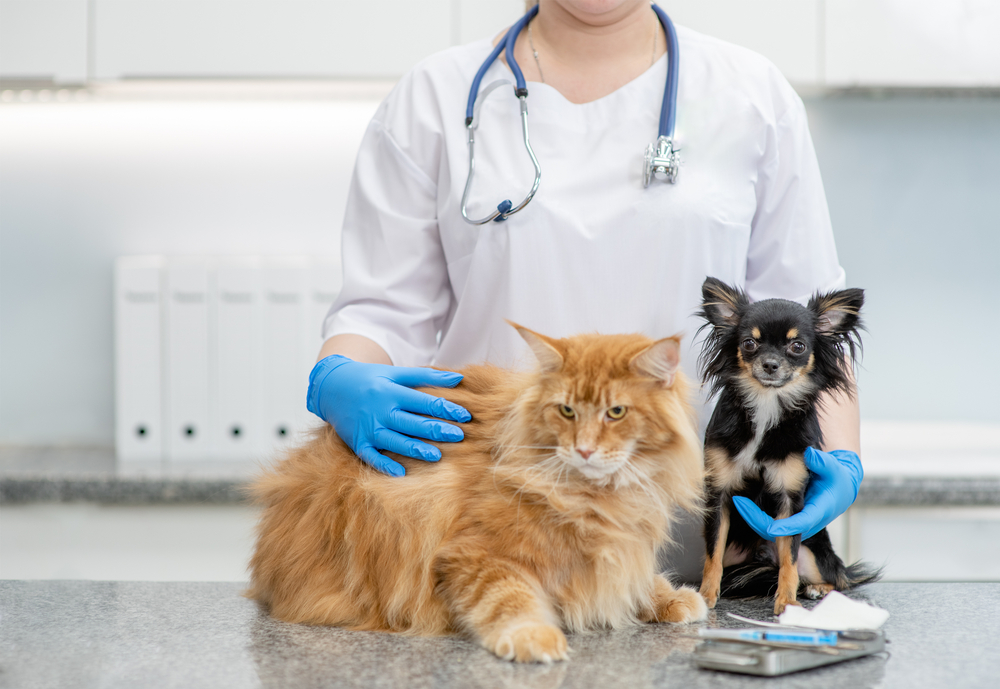When your pet suddenly shows signs of a health problem, prompt veterinary attention is necessary. The question is, should you take your pet to a veterinary emergency clinic or to urgent care? Our team at Safe Harbor Animal Hospital of Animal Hospitals of the Lowcountry explains the different types of veterinary care and how to decide which one is the best option to get your pet the help they need.
Emergency care for your pet
Veterinary emergency clinics provide immediate treatment and triage for serious medical situations. A veterinary emergency is a situation in which a pet’s life is in immediate danger or they show signs that could be life-threatening without swift medical attention. Some common examples of veterinary emergencies include:
- Difficulty breathing — When a pet struggles to breathe, whether because of choking, gasping, or other respiratory issues, it’s a clear sign of a medical emergency.
- Uncontrolled bleeding — Severe bleeding from an injury or wound that doesn’t stop with pressure applied or after 5 minutes warrants immediate veterinary attention.
- Seizures — Some pets have seizures periodically and have been diagnosed and managed with treatment. However, seizures that suddenly appear can indicate a more serious underlying medical condition and require prompt evaluation and treatment by your veterinarian.
- Loss of consciousness — If your pet suddenly collapses or becomes unresponsive, they need immediate medical attention to determine the cause and provide appropriate treatment.
- Severe trauma — Pets involved in accidents, such as being hit by a car or falling from a significant height, require emergency care to assess and treat injuries.
- Bite from a wild or domestic animal — Hopefully, your pet is fully vaccinated, but if a wild animal or unknown pet attacks them, they may require emergency treatment. Animal bites can transmit virulent diseases and infections.
- Ingestion of toxins — Pet poisoning is an emergency because the sooner your pet can be treated, the better their prognosis.
- Heatstroke or hypothermia — Heatstroke results when the body’s temperature rises dangerously because of prolonged exposure to high temperatures. Hypothermia, on the other hand, occurs when the body’s internal temperature drops too low. Both of these conditions are considered emergencies that require prompt intervention.
- Straining to urinate or defecate — Any form of straining to eliminate can be a sign of an infection or blockage of the intestinal tract or something worse, such as abdominal torsion, also known as bloat.
Time is of the essence in any of these emergencies; delaying veterinary care could worsen your pet’s condition or even threaten its life.
Urgent care for your pet
Some health issues may not require immediate medical intervention but may be concerning enough to warrant a veterinary evaluation. Veterinary urgent care is warranted when your pet is showing signs of illness or injury but the signs are not life-threatening. Seeking veterinary care the same day your pet’s signs appear can help speed the healing process. The following situations may not be life-threatening but can cause your pet discomfort or complications if left untreated:
- Vomiting and diarrhea — Persistent vomiting or diarrhea can lead to dehydration and electrolyte imbalances, especially in young or small pets.
- Minor injuries — Cuts, scrapes, or wounds that are bleeding but not severely may still require veterinary attention to clean and dress the wound appropriately and prevent infection.
- Signs of pain or discomfort — Howling or vocalizing, limping, moving reluctantly, or persistently licking one body area may indicate pain caused by an underlying injury or illness.
- Eye redness or eye discharge — Eye conditions in pets should be evaluated since they can quickly worsen and put your pet at risk for blindness.
- Sudden changes in behavior — Any abrupt changes in your pet’s behavior, such as lethargy, decreased appetite, or impulsive aggression, should be investigated by a veterinarian to rule out underlying medical issues.
Being vigilant and responsive to signs of illness and injury in your pet can help you save them from severe and potentially costly health complications. Understanding the difference between veterinary emergency care and urgent care can help you decide where and when to seek medical attention for your pet.
Our Safe Harbor Animal Hospital team is available if your pet needs veterinary care. Contact us if you suspect something unusual or problematic in your pet’s health. You can keep your furry pal safe and happy by making their health and safety a priority and following your instincts.









Leave A Comment